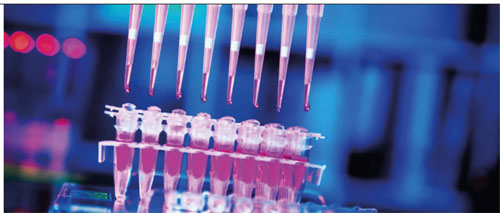Two drugs may help treat advanced tumors, new research finds. luchschen/Getty Images Researchers have found two drugs to be safe and effective in treating individuals with advanced solid tumors.
These medications, ATR inhibitor elimusertib and PARP inhibitor AZD5305, can block key mediators behind DNA damage response (DDR).
In clinical studies, these drugs only induced “reversible and manageable” adverse side effects in some participants.
An estimated 1.9 millionTrusted Source new cancer cases are expected to arise and over 609,000 cancer-related deaths will occur in the United States in 2022. This amounts to 5,250 new cases and 1,670 deaths every day.
Research now suggests that a class of novel drugs may offer promise for people with advancedTrusted Source forms of cancer.
These treatments work by binding to ATR, a key component of the DNA damage response (DDR) pathway. This halts the activation of DNA damage mechanisms and the growth of tumor cells.
Lead investigator Dr. Timothy Yap, associate professor of Investigational Cancer Therapeutics, presented the findings at the American Association for Cancer Research (AACR) Annual Meeting 2022 on April 10, 2022.
The DDR The human DNA is constantly susceptible to damage by normal cellular processes or exposure to external toxic agents.
Prof. Steve Jackson is the University of Cambridge Frederick James Quick and Cancer Research UK Professor of Biology and Head of Cancer Research UK Laboratories at the Wellcome Trust/Cancer Research UK Gurdon Institute. He was not involved in the current studies.
In a March 2022 podcast, Prof. Jackson explains: “[The DDR is] the system that repairs most double-strand breaks that arise in human cells after radiation after certain chemotherapeutics that are using cancer. It’s also needed to generate the immune system as well.”
When the DDR works properly, it helps maintain the genome’s integrity and staves off the development of cancer and other diseases.
Dr. Osita OnughaTrusted Source is a thoracic surgeon and assistant professor of thoracic surgery at Saint John’s Cancer Institute at Providence Saint John’s Health Center in Santa Monica, CA. He was not involved in this research.
In an interview with Medical News Today, Dr. Onugha shared that, as we age, “our DNA repair mechanisms don’t work as effectively.” This is why cancer typically affects older people.









